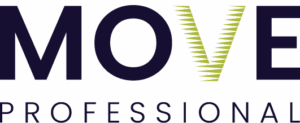Brand you
We explore the importance of developing a unique personal brand for leaders and managers in the sport and physical activity sector.

In our ever-moving sector, if you’re looking to grow your career, just being good at your job isn’t enough. Whether you’re leading a sports organisation, coaching a team or managing a physical activity programme, your personal brand or the way you present yourself, communicate and are perceived by others can make all the difference in your career.
A strong personal brand helps you stand out, build trust and opens doors to new opportunities, whether in your organisation, your wider network or even on a national or international level.
Why personal branding matters
If you think personal branding is just for athletes or social media influencers, think again. As a leader in the sport and physical activity sector, how people see you – your reputation, values and leadership style – directly impacts your success. Here’s why:
People follow leaders that they trust
A well-defined personal brand builds credibility. Whether you’re working with athletes, community groups, funding bodies or governing organisations, people need to know what you stand for and what they can expect from you.
It sets you apart in a competitive field
Whether you’re applying for funding, seeking sponsorships or looking to grow your influence in the sector, your personal brand makes you memorable. It helps people understand what makes you different and why they should listen to you.
It strengthens your impact and influence
Leaders with strong personal brands don’t just run programmes or manage teams, they inspire and drive change. When you consistently present yourself as knowledgeable, passionate and reliable, people are more likely to support your vision.
It future-proofs your career
The sport and physical activity sector is constantly evolving. Whether it’s changes in policy, funding or trends in participation, a strong personal brand ensures that if you ever need to shift roles, your reputation carries weight, making transitions smoother and creating opportunities.

How to build and maintain your personal brand
Define who you are and what you stand for
Before you start creating your personal brand, take a step back and reflect on your leadership identity. Ask yourself:
- What are my core values in relation to the work that I do?
- What kind of leader do I want to be known as: innovative, theoretical, results-driven?
- How do I want people to describe me when I’m not in the room?
Your brand should feel authentic. There’s no point in trying to be someone you’re not – it won’t be sustainable. Instead, focus on your strengths and the qualities that naturally make you a great leader in what you do.
Be consistent in how you’re seen
Your personal brand isn’t just about what you say, it’s about how you act, how you communicate and how you treat people. Consistency is key. If you position yourself as approachable and supportive but rarely engage with your team or community, that disconnect weakens your brand.
The following ideas can help you to maintain consistency with your personal brand:
- Consider how you communicate in meetings, emails and on social media
- Make sure that your LinkedIn profile and other online presence aligns with your leadership values
- Practice what you preach. If you advocate for inclusivity, make sure your leadership reflects that
Build your presence online and offline
Your brand isn’t just built in your workplace, it extends into the wider sector. Make sure that you’re visible, adding value and being part of the debate in spaces that matter.
- Social media. LinkedIn and other platforms can help you share insights, engage in discussions, and position yourself as a thought leader.
- Speaking engagements. Look for opportunities to present at conferences or events or to contribute to webinars.
- Networking. Engage with other professionals in the sector. Attend events, join leadership groups and build connections.
- Content creation. Writing articles, sharing case studies or even starting a blog can help you showcase your expertise and thought leadership.
Create relationships
Your personal brand is underpinned and reinforced by the people that you surround yourself with. You can build a strong network by:
- seeking out mentors and industry peers who inspire you
- collaborating with others working in the sector
- supporting and championing your team and colleagues
- engaging in meaningful conversations rather than just broadcasting your own thoughts.
People remember how you make them feel and being generous with your time, knowledge and support strengthens your personal brand far more than self-promotion ever could.
Keep adapting
Your personal brand shouldn’t be static. Instead it should evolve as you grow in your career. It’s important to seek regular feedback from colleagues, mentors and industry peers to gauge how you’re perceived. Just make sure that you stay open to change and adjust your approach when necessary.
Some ways to help you when they’re thinking about refining your brand:
- Regularly update your online presence to reflect new skills and experiences.
- Attend leadership personal development programmes related to sport and physical activity.
- Be aware of how industry trends impact your leadership style.
- Ask trusted colleagues for honest feedback on how you come across.
Lead with integrity
Ultimately, your personal brand is a reflection of who you are. The best way to strengthen it is to lead with honesty, empathy and a commitment to excellence. Whether you’re a CEO, a coach or a community programme manager, your reputation is built over time through consistent actions and decisions. When you lead with integrity, your brand will naturally grow in strength and influence.
Take away this
Your personal brand is one of the most powerful tools you have as a leader in the sport and physical activity sector. It shapes how people see you, how opportunities come your way, and how you make an impact. By taking control of your narrative, being consistent and staying true to your values, you can build a brand that not only enhances your career but also leaves a lasting legacy in our sector.
So, take a moment to consider brand you.










